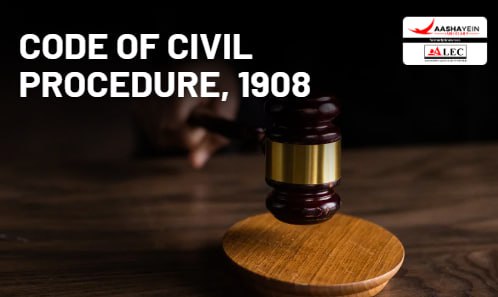Introduction
Order 40 of the Civil Procedure Code (CPC) outlines the rules regarding the appointment of a receiver. Simply put, a receiver is a neutral individual appointed by the court to take possession of and manage property or funds that are the subject of a legal dispute. The receiver ensures that the property is preserved and maintained while the case is ongoing.
Before defining a receiver, it is important to understand that a receiver is an officer of the court. The Supreme Court in Maharaj Jagat Singh v. Lt. Col. Sawai Bhawani Singh (AIR 1993 SC 1721) held that a receiver is an impartial person appointed by the court to oversee the property in dispute, particularly when neither party should have exclusive control over it during the litigation.
Purpose of Appointing a Receiver
The primary objective of appointing a receiver is to protect, preserve, and manage the disputed property during the pendency of litigation. This ensures that neither party exploits or damages the property before the final judgment is delivered. The Supreme Court, in P. Lakshmi Reddy v. L. Lakshmireddy (AIR 1957 SC 314), emphasized that the role of a receiver is to safeguard the interests of both parties and maintain the status quo of the disputed property.
Since the receiver functions as an officer of the court, their role is to act in a fiduciary capacity and ensure impartiality. The court may find it necessary to appoint a receiver when it deems that such an appointment would be in the best interest of all involved parties. This appointment is particularly common in cases involving movable or immovable property.
You can also read the latest judgment by visiting [Latest Judgment].
For more information, visit [Aashayein Enquiry Section]
Types of Receivers Appointed by Courts
There are two main types of receivers that courts can appoint:
- Statutory Receivers – These are appointed under specific statutes that provide for such appointments in certain types of cases. For example, insolvency laws or company laws may allow the appointment of a receiver to manage assets of a bankrupt entity.
- Receivers Under the Civil Procedure Code – These are appointed by courts under the provisions of Order 40 CPC in civil disputes where property needs to be protected during litigation.
Understanding the Role of a Receiver in Civil Law
In legal proceedings, the court sometimes appoints a receiver to manage a property or asset in dispute. This is done to protect the property and ensure its fair management while the case is ongoing. The appointment, duties, powers, and liabilities of a receiver are governed by Order XL of the Code of Civil Procedure, 1908.
Who Can Be Appointed as a Receiver?
The Supreme Court of India, in the case of kasturibai v. Anguri Chaudhary (2001) 3 SCC 176, examined the eligibility criteria for appointing a receiver. Generally, a party involved in the lawsuit is not preferred for this role to maintain impartiality. However, this is not an absolute rule. In certain exceptional circumstances, a party to the suit may still be appointed if the court finds it necessary.
Appointment of a Receiver (Order XL, Rule 1)
A court may appoint a receiver before or after a decree if it deems it just and convenient. The receiver is given authority to:
- Take possession of the disputed property.
- Remove unauthorized occupants from the property.
- Manage and protect the property, ensuring proper upkeep.
- Collect rents and profits from the property.
- Defend legal claims related to the property.
The court grants only the powers it considers necessary for the receiver to fulfill their role effectively.
Remuneration of a Receiver (Order XL, Rule 2)
A receiver is entitled to remuneration for their services. The court determines this amount through a general or special order.
Duties of a Receiver (Order XL, Rule 3)
Once appointed, a receiver must:
- Provide security (if required by the court) to ensure accountability.
- Submit accounts of the property at regular intervals as directed.
- Pay any due amounts as ordered by the court.
- Be responsible for losses caused by willful default or negligence.
Failure to adhere to these duties may result in legal consequences.
Enforcement of a Receiver’s Duties (Order XL, Rule 4)
If a receiver fails to perform their duties, such as:
- Not submitting accounts,
- Not paying due amounts, or
- Causing loss to the property through negligence,
the court has the power to attach and sell the receiver's property to compensate for the losses. Any remaining balance is then returned to the receiver.
Judicial Interpretation
- In legal disputes, courts sometimes appoint a receiver to manage property involved in litigation. The case of C. Venkataswami vs. C. Kotayya (AIR 1962 AP 14) clarifies that under Order 40, Rule 1 of the Civil Procedure Code (CPC), a court can appoint a receiver when it deems such action "just and convenient." This means that if the court believes that appointing a neutral party to oversee the property would be in the best interest of justice, it has the authority to do so.
- A receiver is not merely a caretaker but acts as an officer of the court. The Supreme Court in Balakrishnan Gupta vs. Swadeshi Polytex Limited (AIR 1985 SC 520) emphasized that a receiver functions under the court's direct supervision and control. This means the receiver is not acting on behalf of any one party but is expected to handle the property fairly, impartially, and in accordance with judicial directives.

